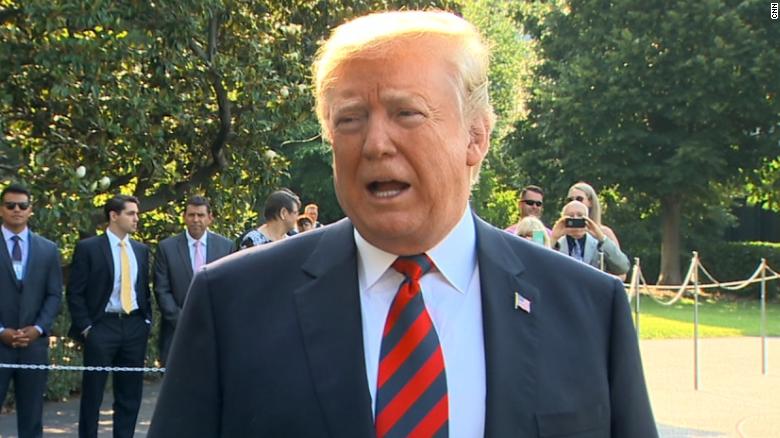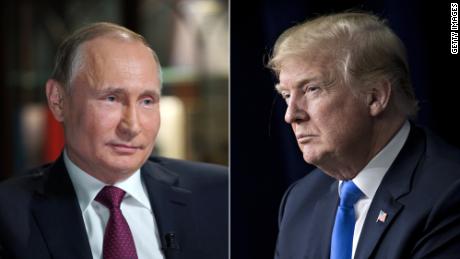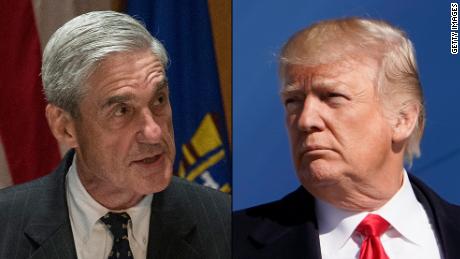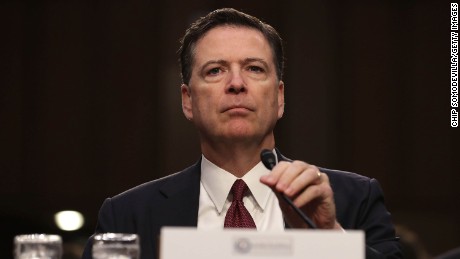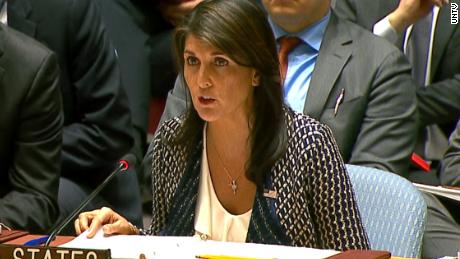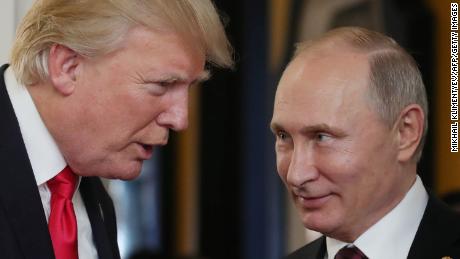Quebec City (CNN)President Donald Trump said Friday that Russia should be reinstated to a leading group of industrialized nations ahead of his visit to the G7 summit this weekend.
Trump's statement is an extraordinary break from key US allies, and particularly striking given Russia's meddling in the 2016 election. A special counsel investigation into whether Trump campaign officials colluded with Russia is underway, though Trump has repeatedly denied the allegations.
"Russia should be in this meeting," Trump told reporters upon leaving the White House for the summit, which is being held in Charlevoix, Canada. "They should let Russia come back in, because we should have Russia at the negotiating table."
Russia was suspended from the group -- then known as the G8 -- in 2014 after the majority of member countries allied against Russia's annexation of Crimea, which Russia continues to hold.
Asked in an interview earlier this week about what would need to happen for Russia to return Crimea to Ukraine, Russian President Vladimir Putin told Austria's ORF broadcasting corporation that "there are no such conditions and there can never be."
Friction with key allies
Trump's comments underscore the growing divide between the US, under his administration, and Washington's closest allies.
The President's willingness to look the other way on Russia's annexation of Crimea -- the first violation of a European country's borders since World War II -- will particularly deepen the chill with allies such as the UK, France and Germany, which are already furious about US trade tariffs, and Trump's rejection of the Iran nuclear deal and the Paris climate agreement.
"We always been clear we should engage with Russia where it is in our interests, but we need to remember why G8 became the G7: it was because Russia illegally annexed Crimea," a European diplomat told CNN. "Since then, we have seen an increase in Russian misbehavior and attempts to undermine democracy in Europe. It is not appropriate for Russia to rejoin until we see it behaving responsibly. Putin should get nothing for free."
At home, Trump's continuing failure to condemn Russia for its aggressive behavior and his ongoing push to restore more normal relations is bound to raise questions, once again, about his affinity for Moscow and Putin.
Sen. John McCain blasted Trump for his comments, saying "The President has inexplicably shown our adversaries the deference and esteem that should be reserved for our closest allies."
The Arizona Republican, who chairs the Senate Armed Services Committee, said in a statement that Putin "chose to make Russia unworthy of membership in the G-8 by invading Ukraine and annexing Crimea. Nothing he has done since then has changed that most obvious fact. Every day, Russian-led separatist forces are killing Ukrainians in the Donbass. Every day, Putin's forces are helping the Assad regime slaughter the Syrian people. And every day, through assassinations, cyber-attacks, and malign influence, Russia is assaulting democratic institutions all over the world."
The statement added, "Those nations that share our values and have sacrificed alongside us for decades are being treated with contempt. This is the antithesis of so-called 'principled realism' and a sure path to diminishing America's leadership in the world."
Sen. Ben Sasse, R-Nebraska, also a member of the Armed Services Committee, said in a statement, "Putin is not our friend and he is not the President's buddy. He is a thug using Soviet-style aggression to wage a shadow war against America, and our leaders should act like it."
Senate Minority Leader Chuck Schumer said Trump was turning US foreign policy "into an international joke, doing lasting damage to our country."
Former Vice President Joe Biden also criticized Trump's remarks, writing on Twitter, "Putin's Russia invaded its neighbors, violated our sovereignty by undermining elections, and attacks dissidents abroad. Yet our President wants to reward him with a seat at the table while alienating our closest democratic allies. It makes no sense."
The comment not only surprised American allies and politicians, but Trump's own National Security Council staff.
A National Security Council official told reporters in Quebec Trump's comments were not planned.
When asked about whether there was a potential for a summit between Russian President Putin and President Trump, the official said there have been no discussions in terms of when, where or what that summit might look like. The official added that there was some chatter, but it's not something the NSC is working on internally.
Acrimonious start to G7
Trump's comments also come at a time when Trump is on the outs with other members of the G7. On Thursday, Trump engaged in a bitter back-and-forth with French President Emmanuel Macron and Canadian Prime Minister Justin Trudeau over Twitter, both of whom he'll meet face-to-face on Friday.
Trump is expecting a knock-down, drag-out fight with top US allies over trade during his time at the conference, held in remote Quebec. It's a battle he believes he can win, but which he's unenthusiastic about waging in person, people familiar with his thinking say.
On Thursday, Macron said the leaders would not rule out a 6+1 communique as opposed to the traditional document signed by all leaders at the end of the summit with shared goals and principles.
One G7 leader, however, quickly backed Trump's statement: Italy's newly sworn in Prime Minister, Giuseppe Conte, who said it would be in "everyone's interest" for Russia to be reinstated.
Although Conte, a former law professor, has not voiced particularly strong opinions on Russia in the past, his two deputies -- the leader of the Five Star movement and the far-right League Party, who have considered influence over him -- have frequently expressed pro-Russia views.
